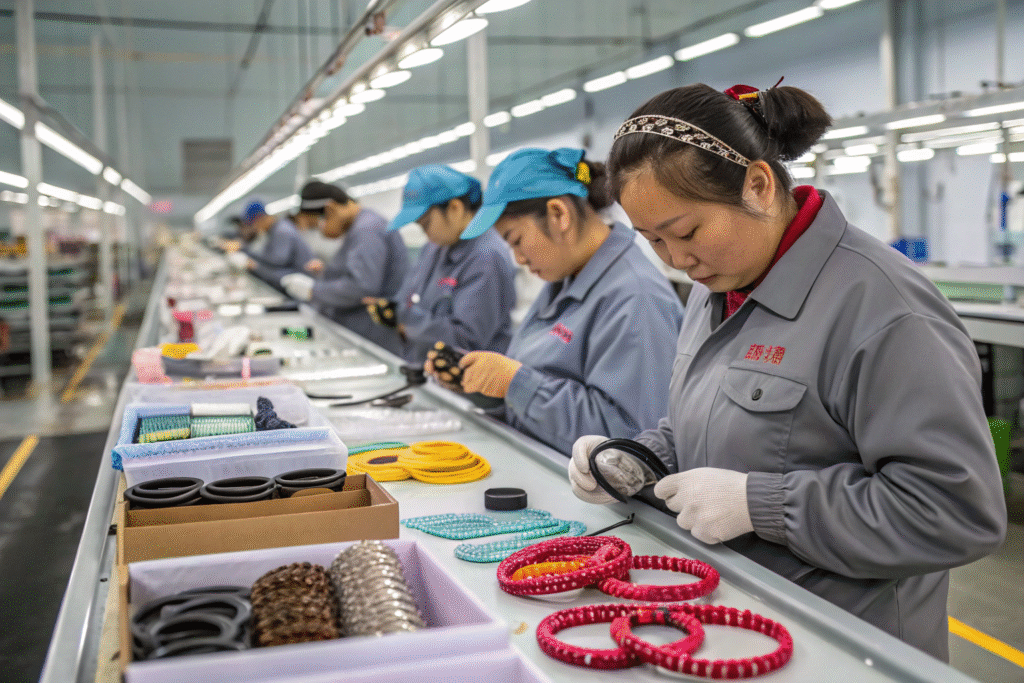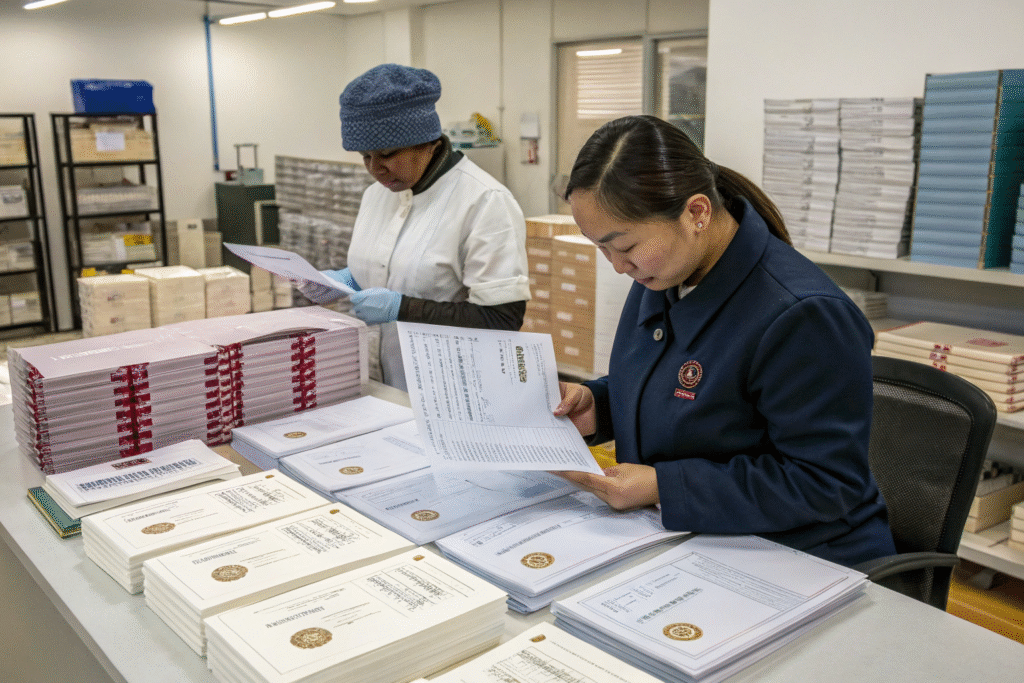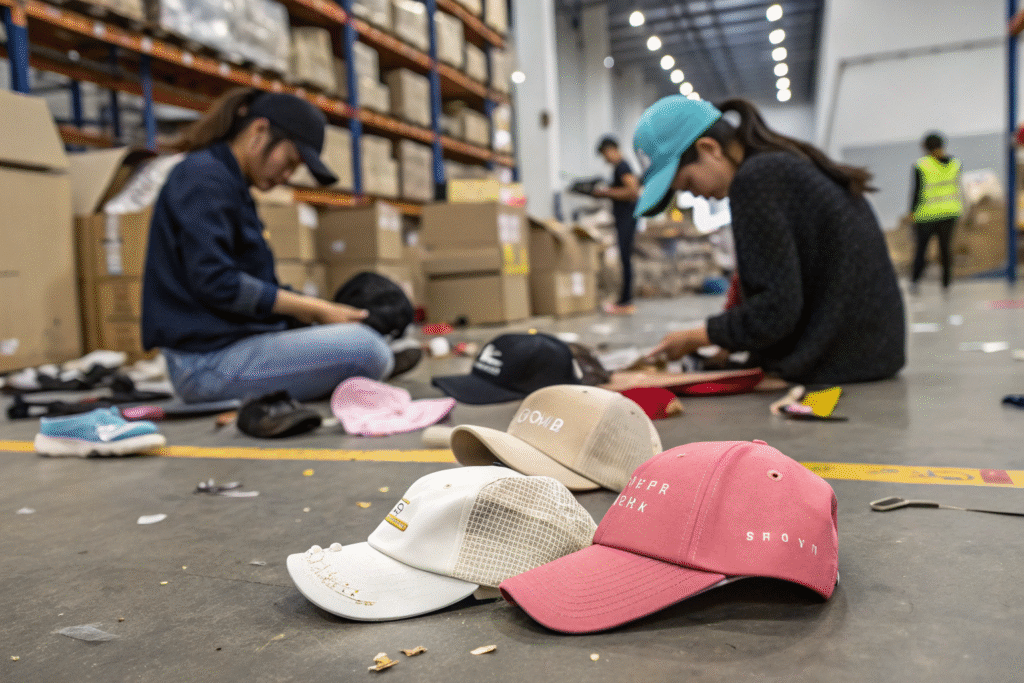When a product recall happens in the fashion accessories industry, it can quickly damage customer trust, hurt brand reputation, and cause financial loss. Many buyers worry about whether their suppliers are prepared to manage such crises. For headwear and hair accessory products, issues like faulty materials, safety concerns, or compliance failures can trigger recalls. The question is, how do reliable manufacturers handle these challenges?
Leading hair accessory suppliers implement strict recall procedures with fast communication, thorough investigation, and transparent cooperation with buyers and regulators. They set up quality control systems in advance, so when a recall occurs, the process is quick, organized, and protects both the brand and end consumers.
At HairAcc, I have seen how important recall planning is for international buyers, especially in the US and Europe, where regulations are very strict. Let’s explore the best practices that top suppliers follow when managing product recalls.
What Quality Control Steps Prevent Recalls?
Leading suppliers focus on prevention first. Recalls usually happen when safety and compliance checks are ignored. Top manufacturers build multiple QC checkpoints during production to minimize risks.
The best suppliers prevent recalls by testing materials, running pre-shipment inspections, and ensuring compliance with international safety standards. This step saves buyers from costly product returns and loss of consumer trust.

How Do Factories Test Materials Before Production?
High-quality suppliers invest in raw material testing to make sure items are safe and durable. For example, metal parts used in hairpins or claw clips must be free from harmful chemicals like lead or nickel. Dyeing and printing factories also test for color fastness to prevent skin irritation or staining issues.
Why Are Pre-Shipment Inspections So Important?
Before products leave the factory, independent third-party inspection agencies or in-house QC teams check random samples. They look for sharp edges, weak elastic, or missing parts in items like scrunchies and headbands. This process ensures only compliant products reach international markets.
How Do Suppliers Communicate Recalls to Buyers?
When a recall is necessary, strong communication is critical. Buyers want immediate updates, clear recall notices, and solutions to reduce damage.
Top suppliers manage recalls by issuing fast notifications, providing corrective action plans, and working closely with buyers on replacement or refund strategies.

What Is the First Step When a Recall Happens?
Suppliers must inform buyers immediately. Many use email alerts, official recall statements or phone calls to make sure customers understand the issue. Buyers receive details about the defect, affected batches, and next steps.
How Do Suppliers Support Buyers During a Recall?
Reliable suppliers offer full support, including logistics solutions for returning products and quick production of replacements. Some even cover part of the shipping costs to show responsibility. This level of cooperation helps maintain long-term business relationships despite setbacks.
What Legal and Compliance Measures Are Followed?
For international trade, legal compliance is non-negotiable. Buyers in the US, EU, and other regions demand that all suppliers follow strict safety and labeling laws.
Leading suppliers comply with certifications, safety regulations, and recall reporting systems required by each target market.

Which Certifications Do Buyers Usually Require?
Buyers often ask for REACH compliance in the EU and CPSIA certification in the US. These certifications guarantee that hair accessories, especially for children, meet chemical safety standards.
How Do Suppliers Handle Official Recall Reporting?
Suppliers must submit detailed reports to local authorities, like the European Commission Safety Gate or the US Consumer Product Safety Commission. This step proves that they are accountable and reduces penalties.
How Can Buyers Trust Suppliers After a Recall?
Even after a recall, strong partnerships can survive if trust is rebuilt. Buyers need to feel secure about the supplier’s ability to improve.
The best suppliers rebuild trust by upgrading quality systems, offering compensation plans, and proving their commitment to long-term partnerships.

What Improvements Do Suppliers Make After a Recall?
They often invest in better quality management systems and new testing equipment. They may also introduce more frequent random inspections to prevent similar issues.
How Do Suppliers Compensate Buyers?
Some suppliers provide partial refunds, extra discounts on future orders, or faster production lead times to rebuild confidence. This proactive approach reassures buyers that the supplier values long-term cooperation over short-term profit.
Conclusion
Product recalls can seem like a nightmare for buyers of hair accessories. However, the way a supplier responds makes all the difference. Leading manufacturers prevent recalls with strong quality control, handle them with fast communication, follow strict legal rules, and rebuild trust through improvements and compensation.
At HairAcc, we believe that transparency, accountability, and commitment to quality are the keys to long-term global partnerships. If you are considering launching your own hair accessory line, you can contact our Business Director Elaine at elaine@fumaoclothing.com. We would be glad to help you build a reliable and fashionable brand with our professional manufacturing services.









